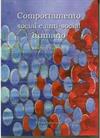
The Black Ship
1 journaler for this copy...
Mutiny on the Hermione, 1797.
Journal Entry 2 by Vasha at The Shop, 312 E Seneca St in Ithaca, New York USA on Friday, March 25, 2011
Released 13 yrs ago (3/25/2011 UTC) at The Shop, 312 E Seneca St in Ithaca, New York USA
WILD RELEASE NOTES:
On the bookshelf.
Returned to me; it wasn't moving at the cafe.
 Most history books, when they set out to narrate an episode of the past, also have a thesis they want to argue. In the case of The Black Ship, you might say that Dudley Pope is writing a rebuttal to a letter by Sir Hyde Parker, Commander-in-Chief of the naval operations in the West Indies, who, fearful that revolutionary potential lurked in the minds of sailors, argued that all the men who had been aboard the Hermione at the time of the mutiny should be hanged, even if it could be clearly shown that they had taken no part—in order to “[impose] discipline by the terror of exemplary punishment”.
Most history books, when they set out to narrate an episode of the past, also have a thesis they want to argue. In the case of The Black Ship, you might say that Dudley Pope is writing a rebuttal to a letter by Sir Hyde Parker, Commander-in-Chief of the naval operations in the West Indies, who, fearful that revolutionary potential lurked in the minds of sailors, argued that all the men who had been aboard the Hermione at the time of the mutiny should be hanged, even if it could be clearly shown that they had taken no part—in order to “[impose] discipline by the terror of exemplary punishment”.Captain Hugh Pigot, commanding the Hermione, had been a favorite protégé of Sir Hyde’s. No captain had been fonder of exemplary punishment than he; the list of floggings he ordered over the course of a year is one of the longest in the British navy. Yet he was not merely strict; he was also incompetent at his duties and had an overwhelming pride that led him to punish others for his own mistakes and attempt to terrorize them into doing what he wanted, however unreasonable. Pope exposes the way that promotions operated in the Navy so that a man like Pigot could be put in charge of a frigate with very little experience and no one ever having criticized his conduct. Pope consistently argues that neither the Hermione’s crew, nor other sailors who mutinied in the year 1797, were revolutionaries, and that Pigot’s methods of “imposing discipline”, both arbitrary and extreme, in fact acted to destroy all discipline on board.
Dudley Pope was equally known as a historian and a novelist, and he writes as both in this book. At times he inserts scenes narrated from the point of view of someone who participated in them, imagining their very thoughts. His descriptions of events are invariably vivid. The reader can never be tempted to view this book as a purely “neutral” examination, because besides the emotional color lent by Pope’s novelistic writing, he contributes overtly moralizing analysis. This is no doubt more honest than books where the author’s point of view is more hidden. It is a good thing that the present edition (Heart of Oak Sea Classics) has an introduction by Christopher McKee that offers some hindsight and some caveats to Pope’s analysis. McKee has no serious criticisms of the work; for my part, speaking of course with less knowledge, I think that this is an admirably clear book that is well suited to a general audience.












